2024年11月5日,由厦门大学、中国海洋发展基金会、福建省海洋与渔业局共同主办,厦门大学海洋与地球学院、福建海洋可持续发展研究院(厦门大学)(下称:闽海院)、海岸带可持续发展能力建设实验室、海水养殖生物育种全国重点实验室联合承办的“2024海上丝绸之路国际产学研用合作会议海洋科技与工程分会暨永续海洋论坛”在厦门宾馆举行。论坛以“蓝色经济助力海岸带可持续发展”为主题,吸引了来自马尔代夫、马来西亚、南非、新西兰、印度、印度尼西亚及中国等多个国家的二十余家(个)科研院所、政府部门及企事业单位的130余名专家学者齐聚线下参会。线上会场亦同步面向全球开放。
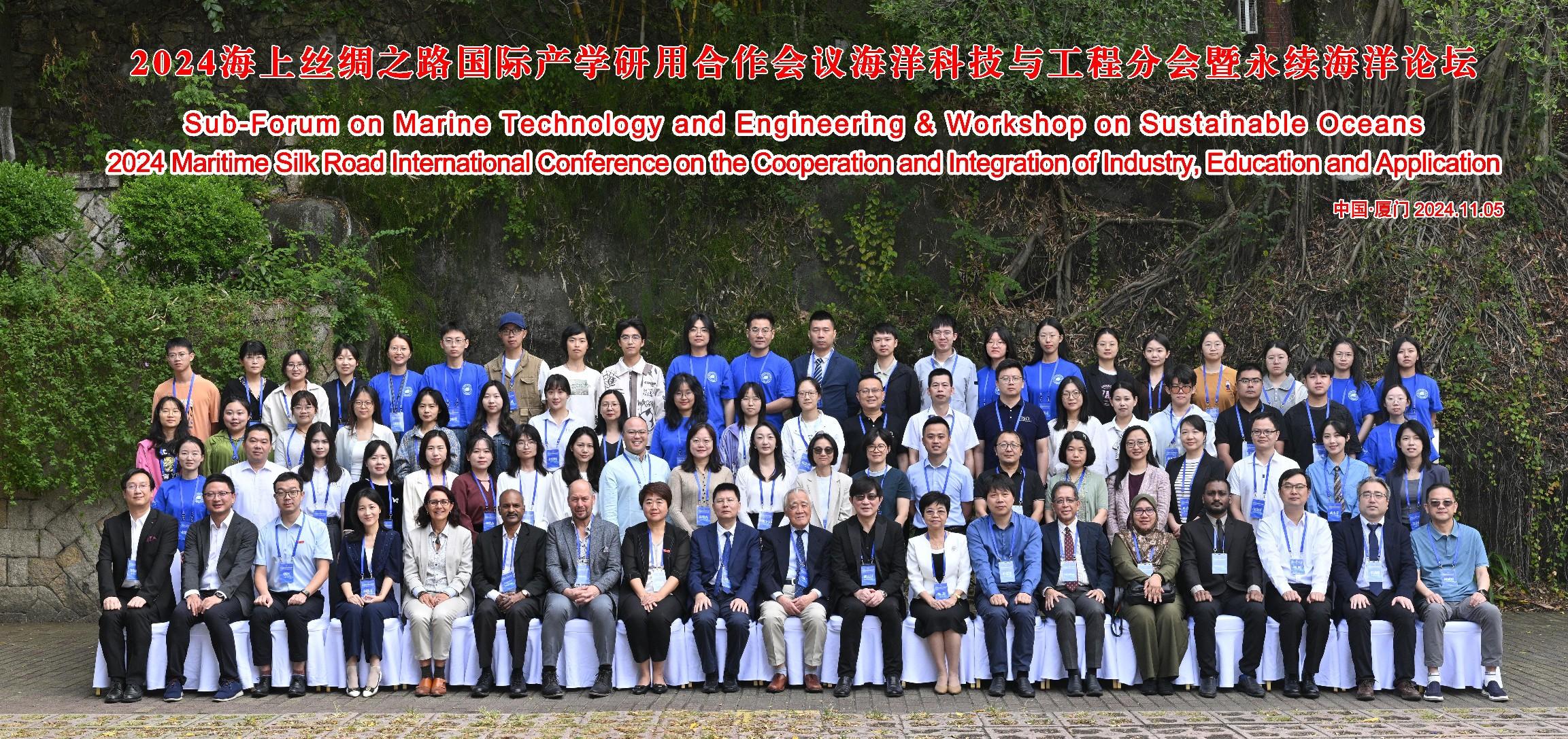
图为开幕式合影
Img. Group Photo
首先进行的是2024海上丝绸之路国际产学研用合作会议开幕式。开幕式由厦门大学海洋与地球学院副院长李骁麟主持,福建省教育厅专职副总督学黄建顺,中国海洋发展基金会理事长吕滨,福建省海洋与渔业局二级巡视员石国和,中国科学院院士、厦门大学校务委员会副主任、地球科学与技术学部主任戴民汉教授分别致辞。开幕式上还进行了海上丝绸之路国际产学研用合作会议的成果展示,以视频的形式展示了会议自2021年举办以来取得的丰厚成果和工作亮点,并举行了海洋遥感大数据福建省高校工程研究中心的揭牌仪式。

图为开幕式主持人李骁麟
Img. LI Xiaolin, Host of Opening Ceremony
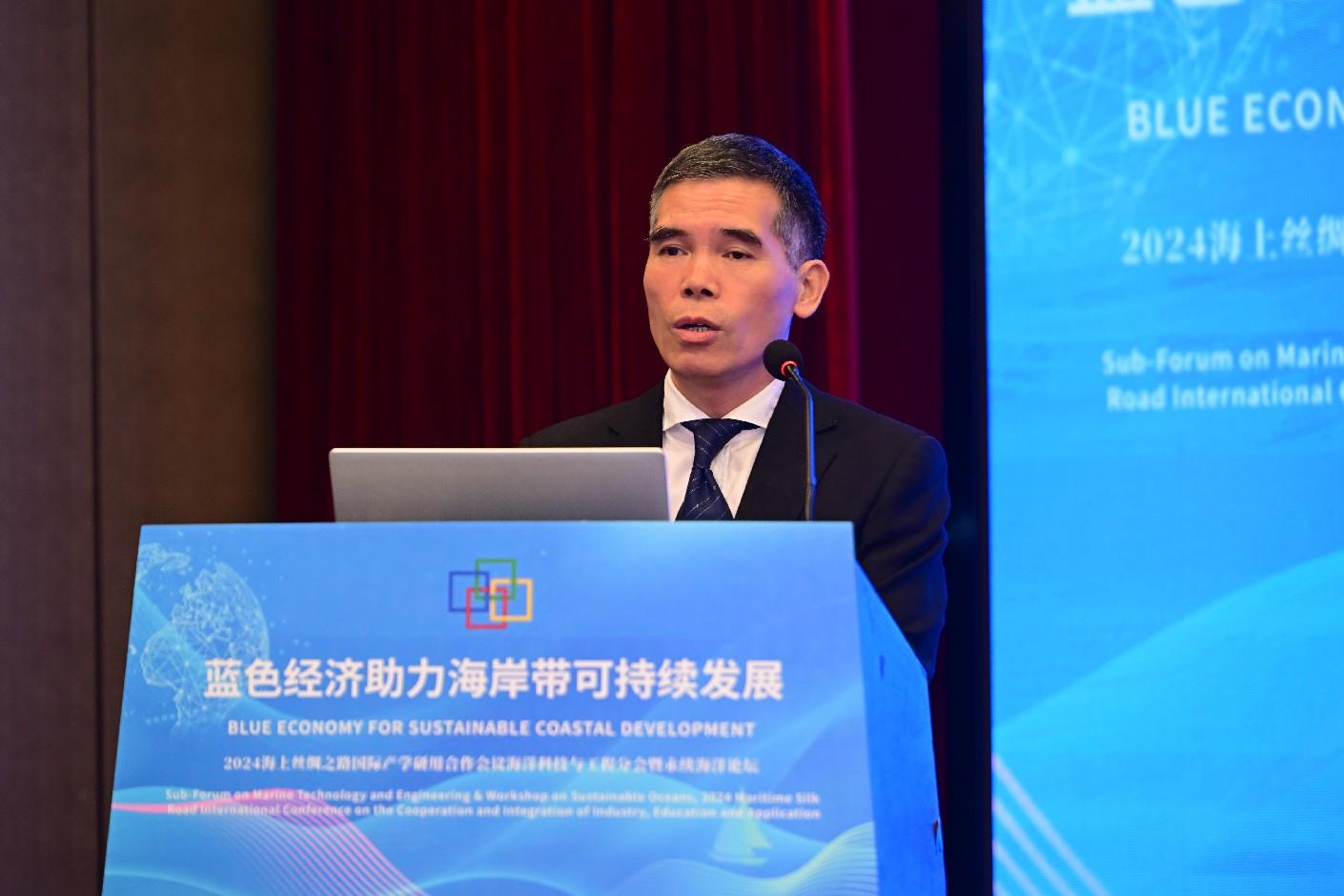
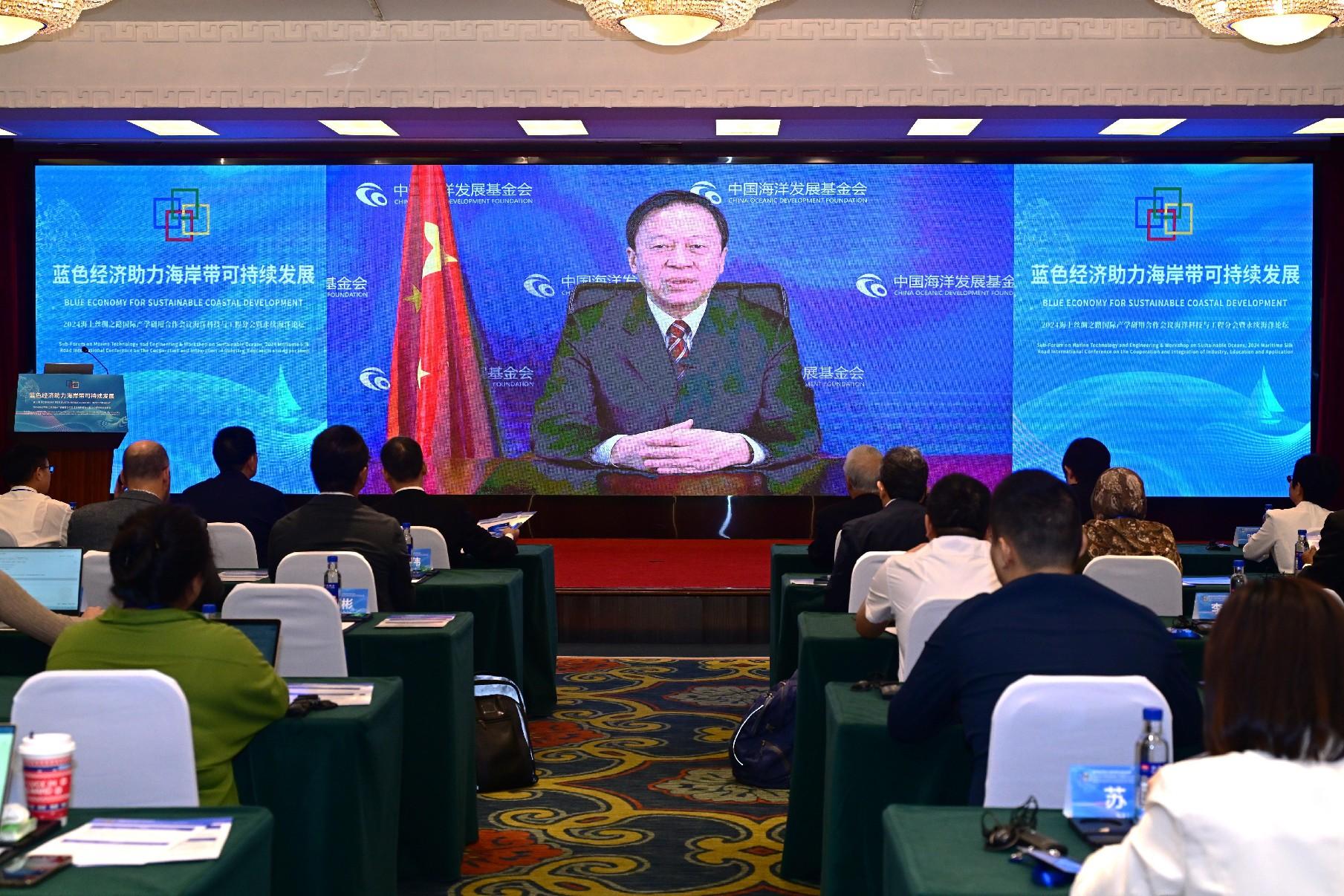
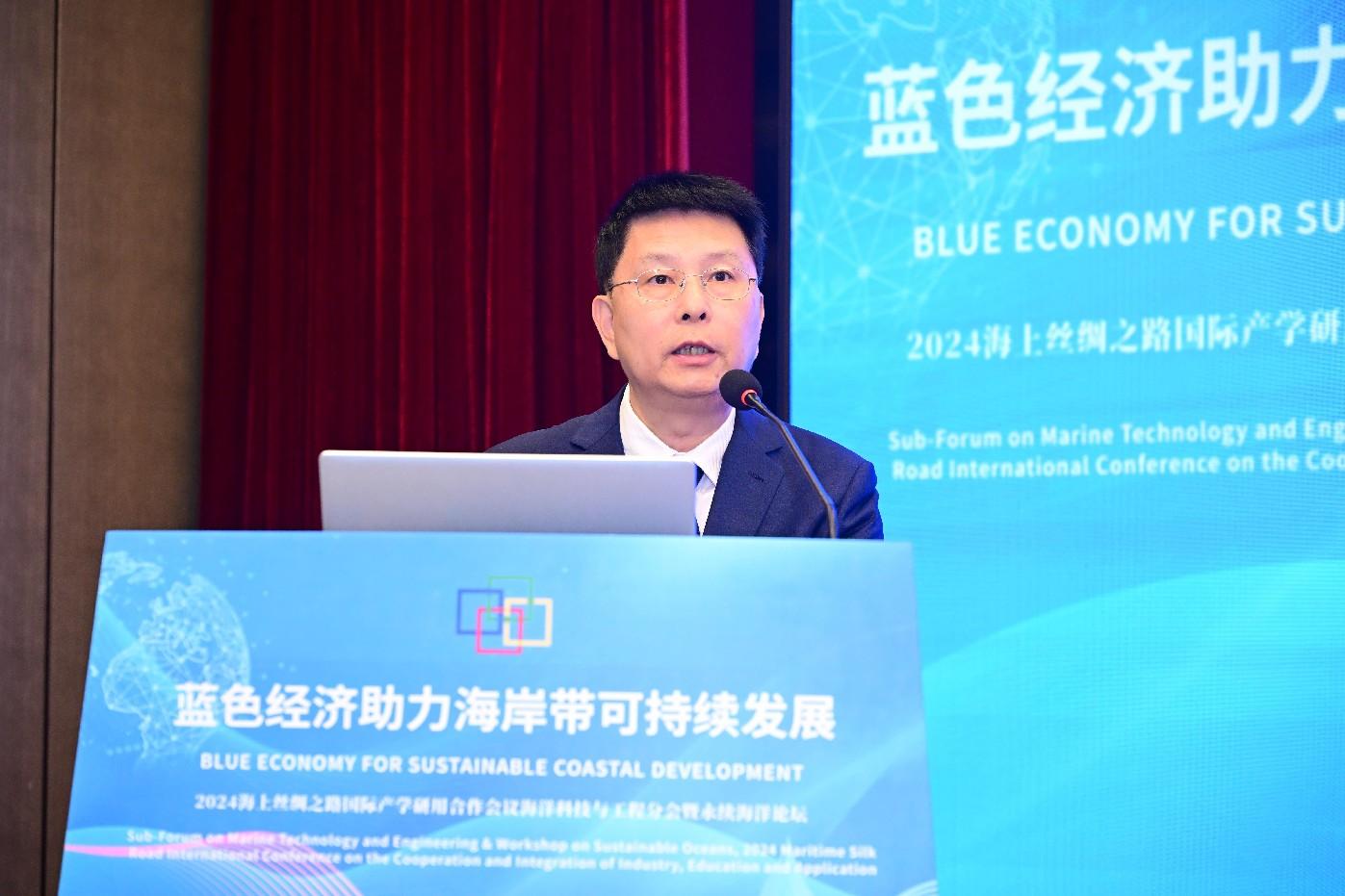
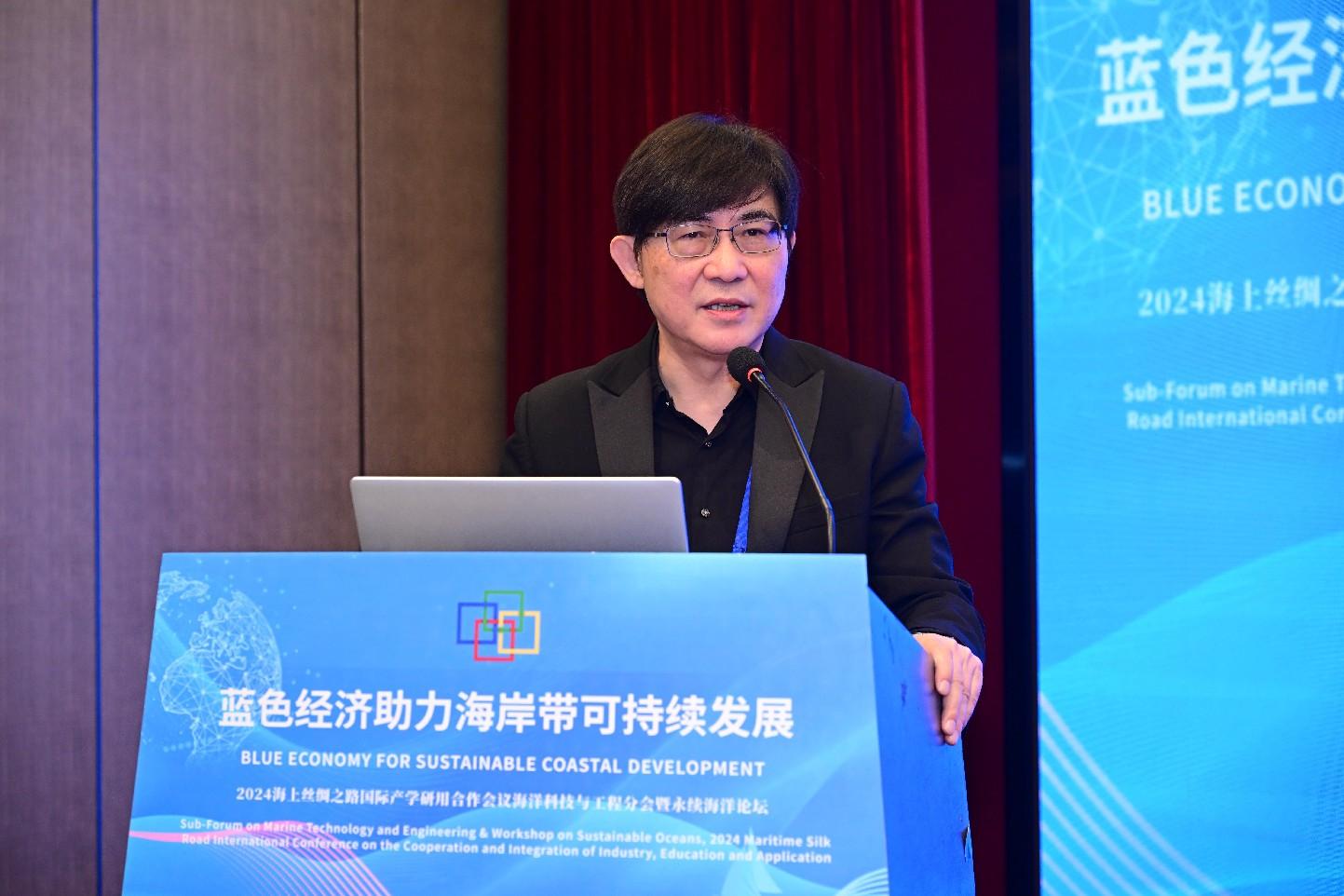
图为黄建顺、吕滨、石国和、戴民汉
Img. HUANG Jianshun, LV Bin, SHI Guohe, DAI Minhan
之后进行的是主旨演讲环节,由中国科学院院士、自然资源部第二海洋研究所名誉所长苏纪兰研究员担任该环节主持人。国际鲍鱼协会前主席、南非水产养殖协会主席Peter Britz教授和印尼茂物农业大学海事海洋与渔业国际研究院主席Luky Adrianto教授分别就非洲渔业与养殖业卓越中心联盟助力实现非洲大陆经济发展目标和蓝色经济发展监测数据工具开发的相关研究工作进行分享,国务院发展研究中心原副巡视员周宏春研究员则从宏观角度分析了新质生产力在推动蓝色经济可持续发展中的重要作用。与会嘉宾与发言嘉宾进行了热烈互动。
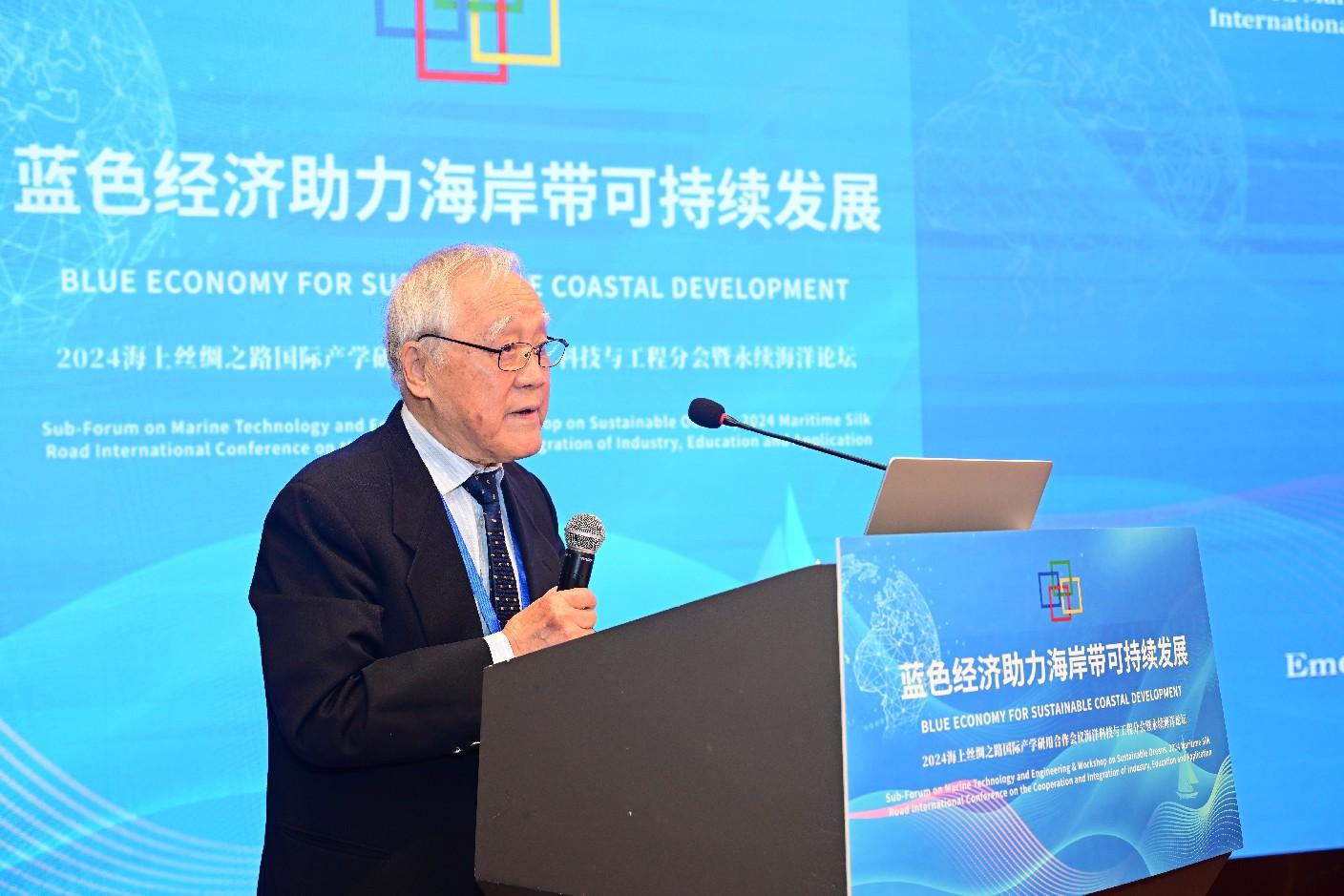
图为主旨演讲主持人苏纪兰
Img. SU Jilan, Moderator of Keynote Presentations

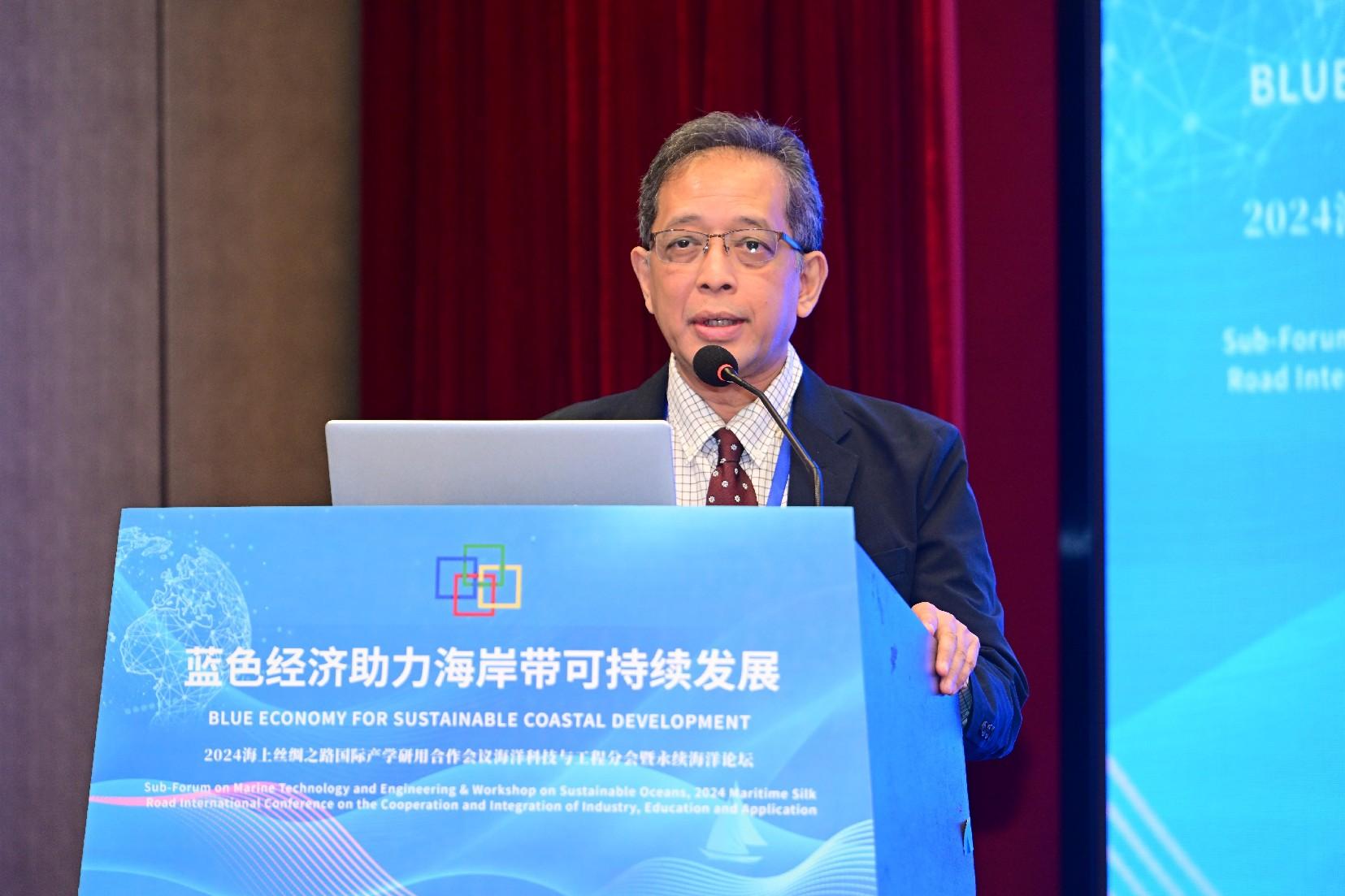
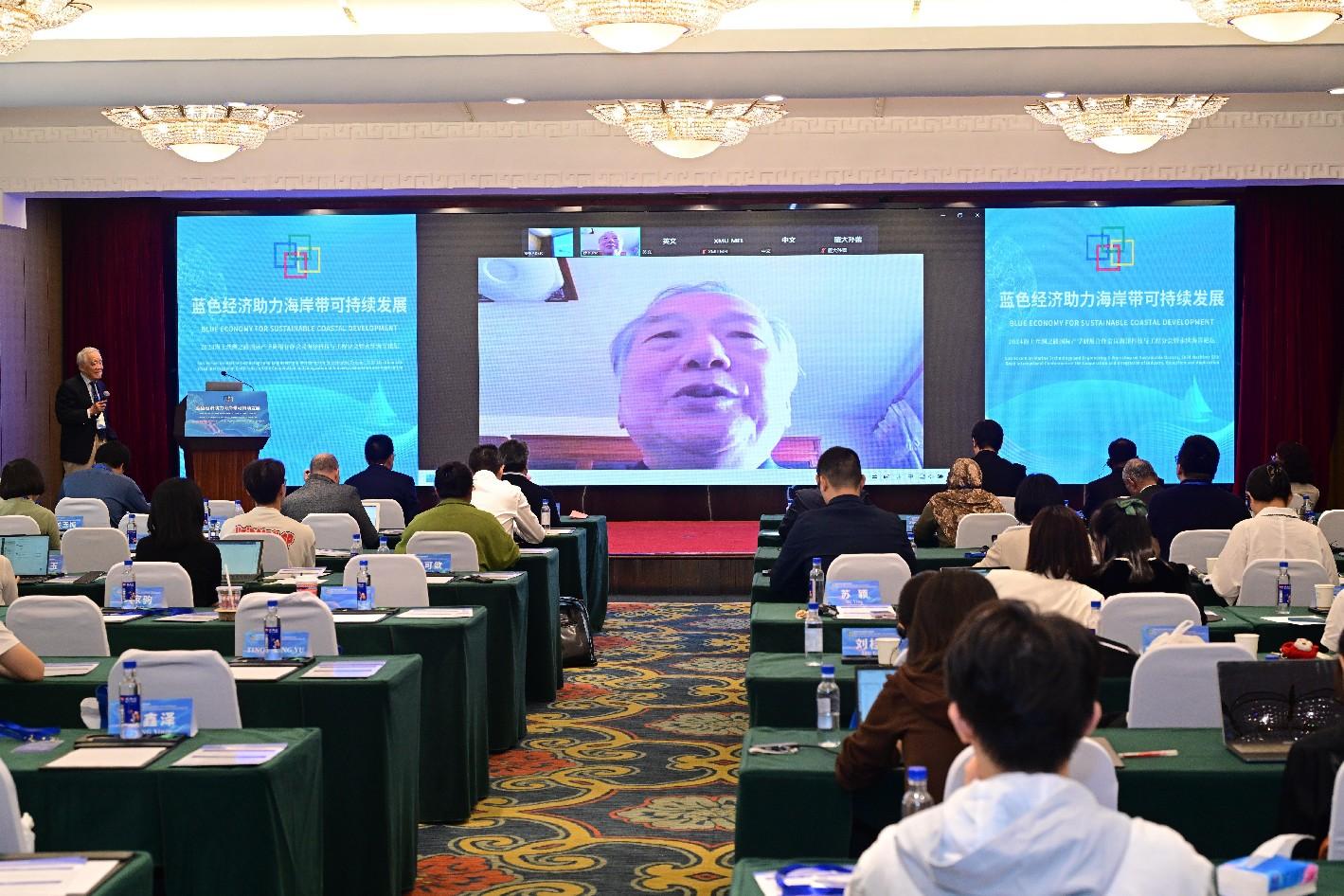
图为Peter Britz, Luky Adrianto, 周宏春(线上)
Img. Peter Britz, Luky Adrianto, ZHOU Hongchun (online)
下午,论坛围绕“蓝色经济促进模式与方法”以及“蓝色食品与全健康水产养殖”两个专题展开深入研讨。两个专题分别由闽海院院长薛雄志教授和闽海院副院长、厦门大学海洋与地球学院游伟伟教授召集,游伟伟教授主持,国内外6位知名专家学者受邀进行报告分享。
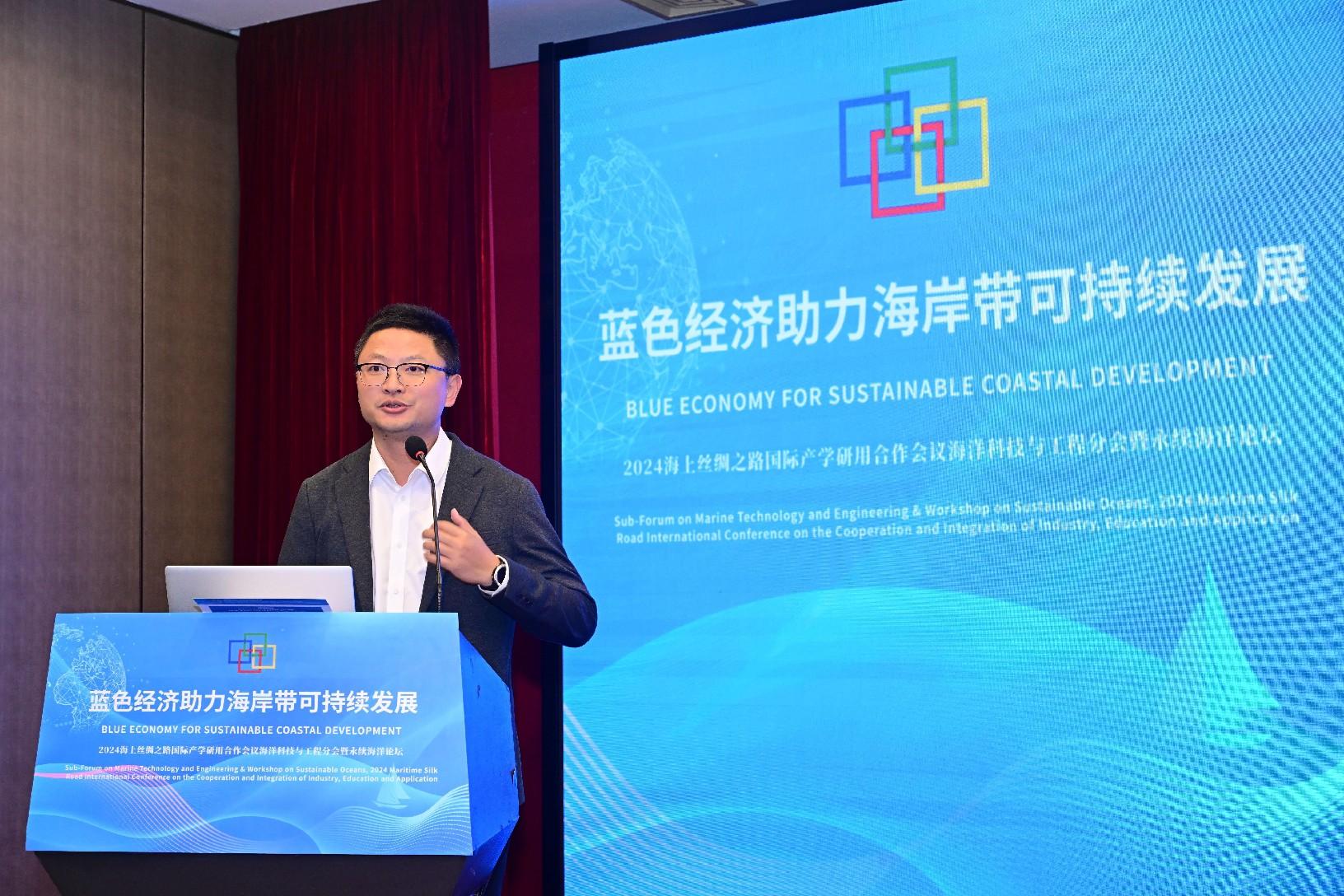
图为专题主持人游伟伟
Img. YOU Weiwei, Moderator of Themed Sessions
在“蓝色经济促进模式与方法”专题中,中国海洋发展基金会副理事长兼秘书长潘新春教授阐述了中国在构建现代化海洋产业体系方面所取得的进展,并着重指出了中国与“一带一路”沿线国家在海洋领域合作上的积极态势;马来西亚登嘉楼大学海洋治理中心负责人Wan Izatul Asma Binti Wan Talaat教授通过以瓜拉登嘉楼和瓜拉尼鲁斯为研究区域的马来西亚海洋空间规划合作研究项目案例,阐述了海洋空间规划对资源可持续利用的重要性;厦门大学一带一路研究院常务副院长、闽海院副院长施余兵教授剖析了蓝色经济的定义、部门分类及福建面临的挑战,提出立法、资金和科技创新是蓝色经济发展的关键。
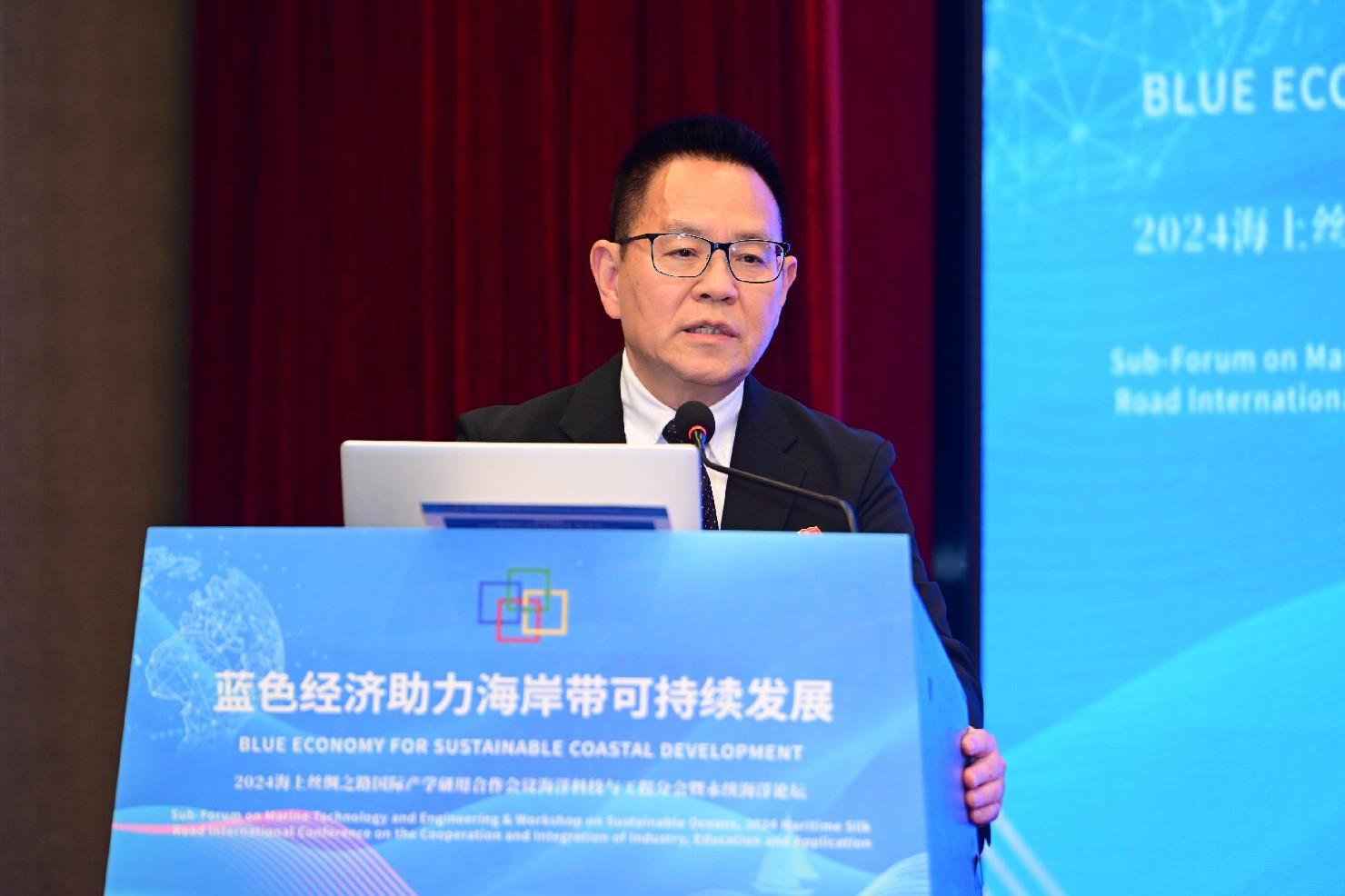
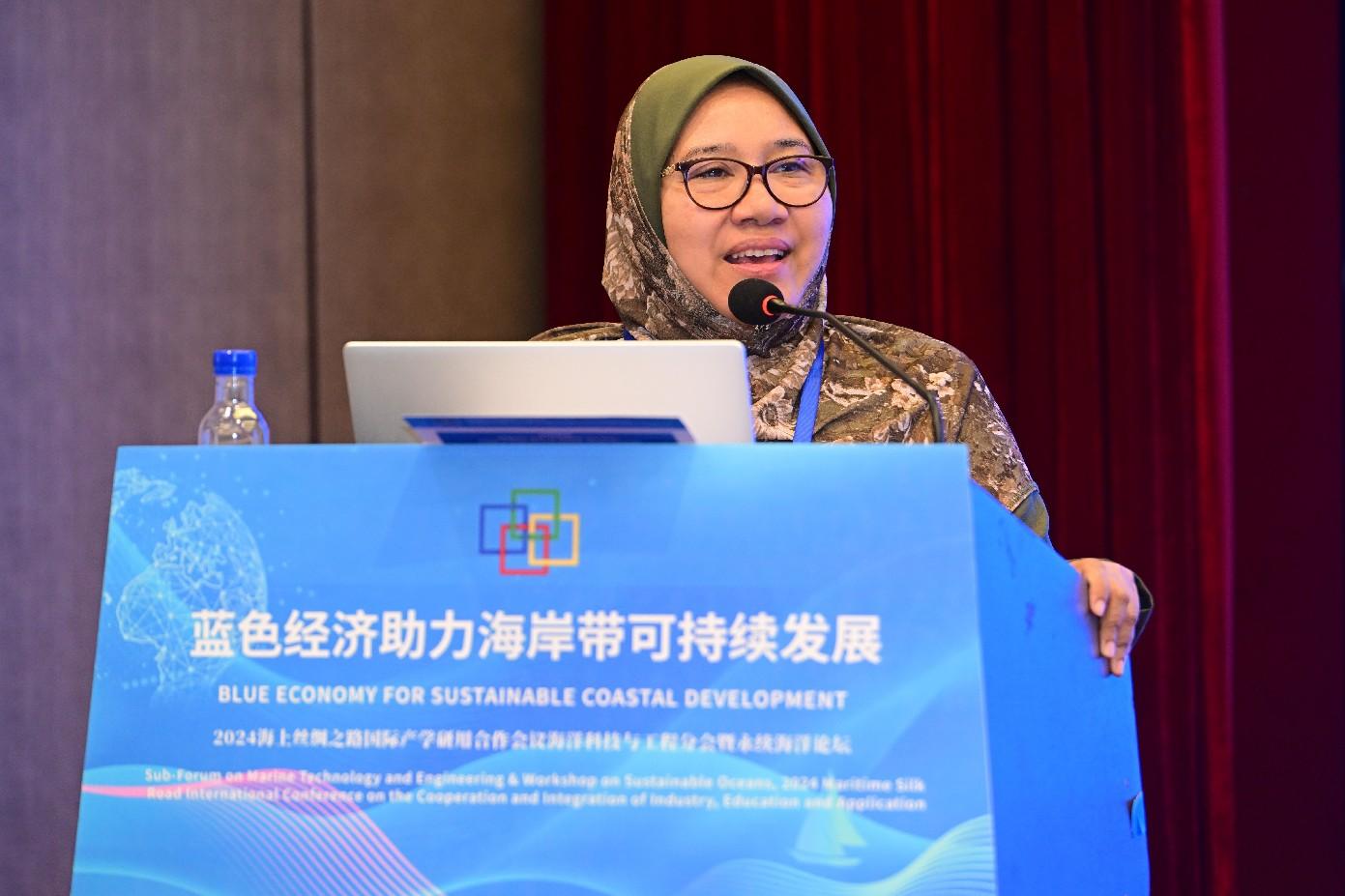
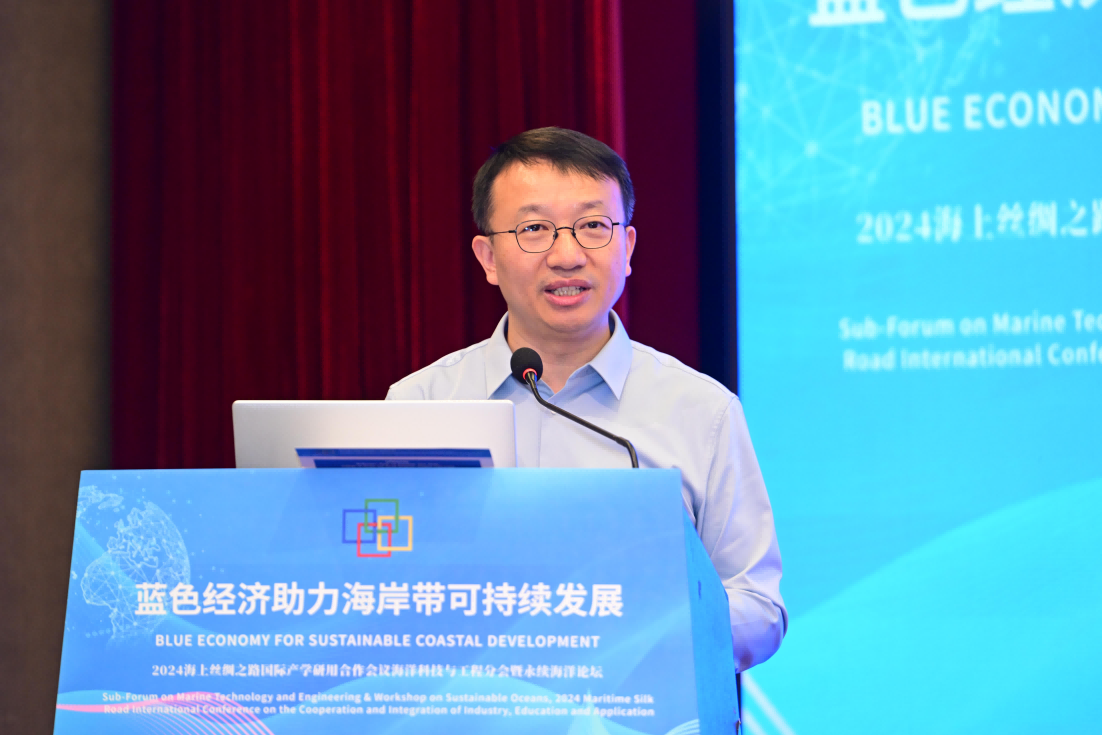
图为潘新春、Wan Izatul Asma Binti Wan Talaat、施余兵
Img. PAN Xinchun, Wan Izatul Asma Binti Wan Talaat, SHI Yubing
在“蓝色食品与全健康水产养殖”专题中,香港大学Vengatesen Thiyagarajan教授聚焦牡蛎产业,探讨了其面临的挑战与机遇,分享了气候变化下牡蛎可持续养殖的研究进展;国际鲍鱼协会秘书长、新西兰奥克兰理工大学Andrea Alfaro教授展望了新西兰贝类水产养殖的前景,提及了政府的支持与产业的高品质、绿色声誉;马尔代夫共和国渔业和海洋资源部采购官员Mohamed Abdulla介绍了该国在海洋资源管理和蓝色经济方面的现状、挑战及政策努力,并感谢中国在渔业产业上的支持与合作。
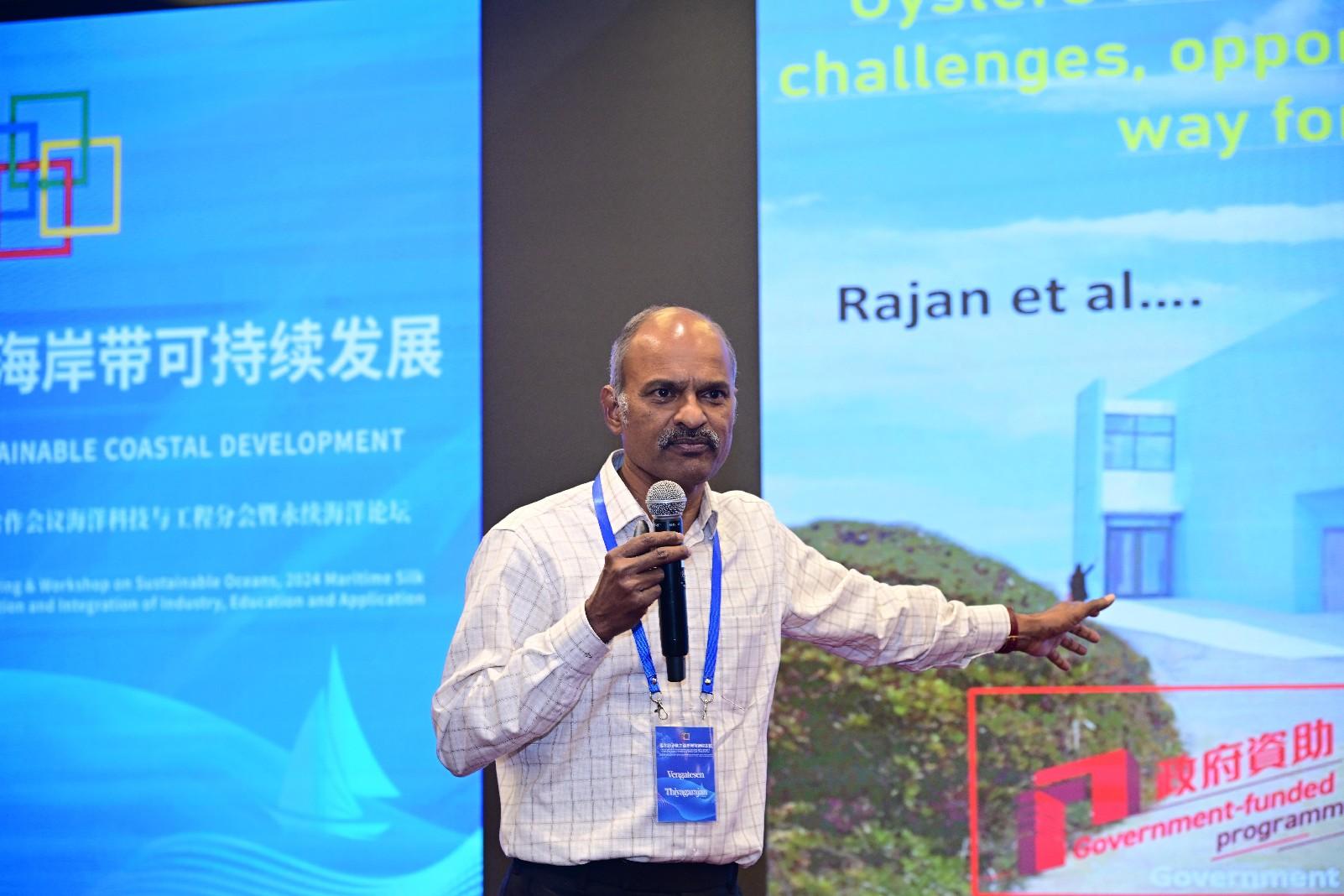
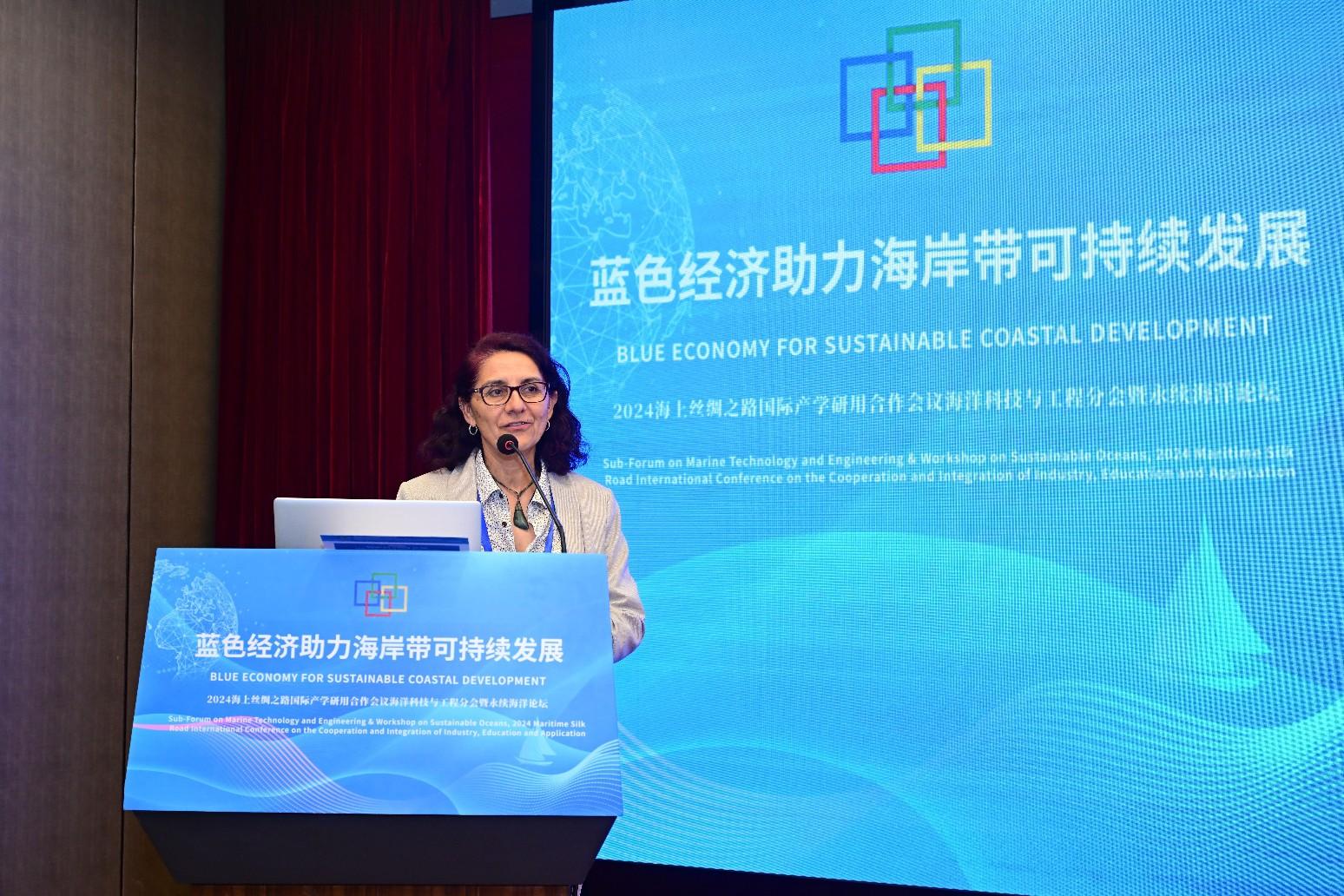
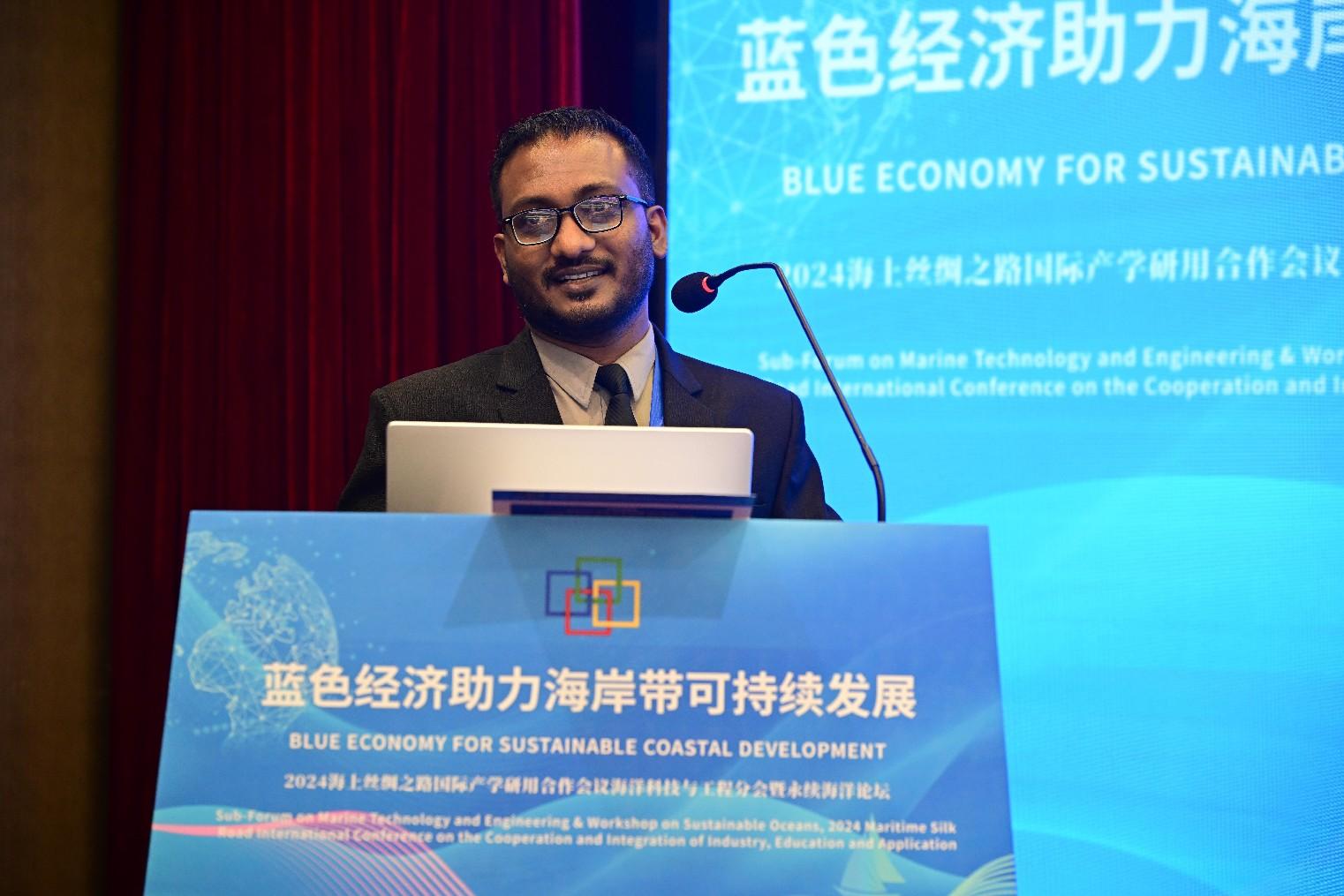
图为Vengatesen Thiyagarajan、Andrea Alfaro、Mohamed Abdulla
Img. Vengatesen Thiyagarajan, Andrea Alfaro, Mohamed Abdulla
本次论坛汇聚了蓝色经济发展的新理念、新模式和新方法,这些宝贵的思想碰撞为推动蓝色经济的可持续发展注入了强大动力。展望未来,各方将秉持合作共赢的精神,不断深化产学研用合作,共同探索蓝色经济可持续发展的崭新航道,为海洋事业可持续发展贡献智慧与力量。闽海院也将继续发挥省级多学科交叉科技平台的功能,以蓝色经济助力海岸带可持续发展,促进该领域的国际交流与合作。
On November 5, the Sub-Forum on Marine Technology and Engineering & Workshop on Sustainable Oceans, 2024 Maritime Silk Road International Conference on the Cooperation and Integration of Industry, Education and Application (hereinafter the “Workshop”) was held in City Hotel of Xiamen. The Workshop was organized by Xiamen University, China Oceanic Development Foundation, Fujian Provincial Bureau of Ocean and Fisheries, and co-organized by College of Ocean and Earth Sciences of Xiamen University, Fujian Institute for Sustainable Oceans of Xiamen University, Sustainable Coastal Development Capacity-Building Research Lab, and State Key Laboratory of Mariculture Breeding. Themed “Blue Economy for Sustainable Coastal Development”, the workshop attracted more than 130 professionals and officials from dozens of institutes, government sectors and private sectors from China, India, Indonesia, Maldives, Malaysia, New Zealand, and South Africa. The Workshop was livestreamed globally.
The opening ceremony was hosted by Li Xiaolin, Vice Dean of the College of Ocean and Earth Sciences at Xiamen University (COE, XMU). Huang Jianshun, Deputy Inspector General of the Education Department of Fujian Province, Lv Bin, President of the China Oceanic Development Foundation, Shi Guohe, Level II Counsellor of the Fujian Provincial Bureau of Ocean and Fisheries, and Academician Dai Minhan, Deputy Chairman of the Xiamen University Council/Director of the Faculty of Earth Sciences and Technology, delivered opening and welcoming speeches. The opening ceremony also featured a video showcase of the highlights of the Maritime Silk Road International Conference on the Cooperation and Integration of Industry, Education and Application since its inception in 2021. Additionally, the unveiling ceremony of the Fujian Provincial Engineering Research Center for Marine Remote Sensing Big Data was held.
Academician Su Jilan, Emeritus Director/Researcher of Second Institute of Oceanography under Ministry of Natural Resources, P. R. China moderated the following keynote presentations. Prof. Peter Britz, Former President of the International Abalone Society (IAS) and Chair of Aquaculture Association of Southern Africa (AASA), shared on the role of the African Union Centres of Excellence in fisheries and aquaculture in supporting the African continent’s economic development agenda. Prof. Luky Adrianto, Chairperson of the International Research Institute for Maritime, Ocean and Fisheries (i-MAR) at IPB University in Indonesia, shared studies on data monitoring tools development for blue economy. Researcher Zhou Hongchun, Former Deputy Inspector of Development Research Center of the State Council, P. R. China, elaborated on how new productive force can promote blue economy and sustainable development. The presentations sparked lively discussions.
Two workshop sessions were held in the afternoon, themed the “Framework and Approaches to Advance Blue Economy”, which was convened by Prof. Xue Xiongzhi, Dean of Fujian Institute for Sustainable Oceans (FISO) of Xiamen University, and “Blue Food and One Health Aquaculture” convened by Prof. You Weiwei from COE, who is also the Vice Dean of FISO. The two sessions were moderated by Prof. You. Six renown professionals from different fields were invited to deliver presentations.
In the first session, Vice President of China Oceanic Development Foundation Prof. Pan Xinchun shared China’s progress in modernizing maritime industry systems, and underscored the positive trends in maritime cooperation between China and countries along the Belt and Road. Prof. Wan Izatul Asma Binti Wan Talaat, Head of Centre for Ocean Governance under Institute of Oceanography and Environment at Universiti Malaysia Terengganu, demonstrated the importance of marine spatial planning in the sustainable use of resources through a case study on Joint Marine Spatial Planning Project in Malaysia for Kuala Terengganu and Kuala Nerus. Prof. Shi Yubing, Executive Deputy Dean of The Belt and Road Research Institute at XMU and Vice Dean of FISO, shared the definition of blue economy, sector classifications, and challenges faced in Fujian province. He emphasized that legislation, budgets and technological innovation is key to blue economy development.
In the second session, Prof. Vengatesen Thiyagarajan from the University of Hong Kong focused on oyster aquaculture, the challenges and opportunities faced, and the researches on sustainable oyster aquaculture against climate change. Prof. Andrea Alfaro from Auckland University of Technology, New Zealand, who is also the Secretary of IAS, shared outlooks on shellfish aquaculture in New Zealand, which, with supports from government, is dedicated to provide high quality and green products to consumers. Procurement Officer Mohamed Abdulla, Ministry of Fisheries and Ocean Resources from Republic of Maldives, introduced the status quo of Maldives in marine resource management and blue economy. He also elaborated on the challenges and policies, and expressed gratitude towards China for support and cooperation in their fisheries industry.
The Workshop channeled new thinking, new models and new methodologies for blue economy development, fueling its sustainable growth. Looking forward, all parties will continue to further the cooperation in industry, education and application, to explore new pathways for the sustainable development of blue economy, and to contribute wisdom and strength to the field. FISO will also play its role as a provincial-level cross-disciplinary S&T platform to facilitate sustainable coastal development through blue economy, and to promote exchange and cooperation in the field.

